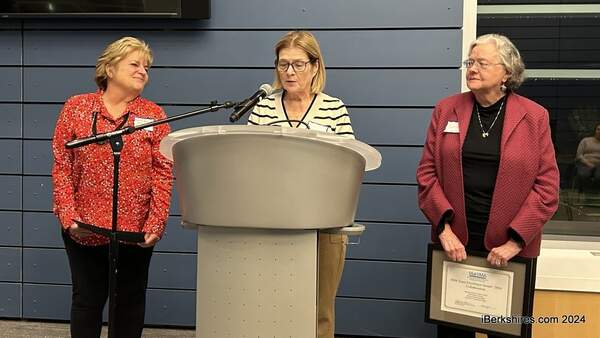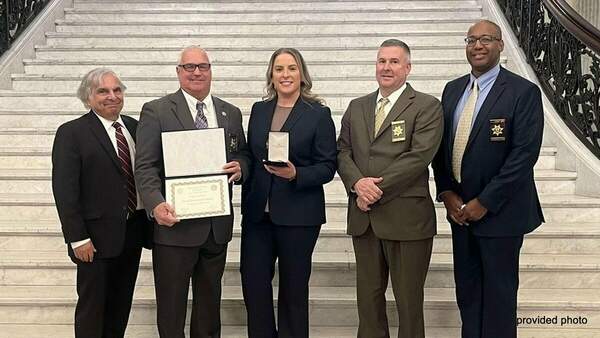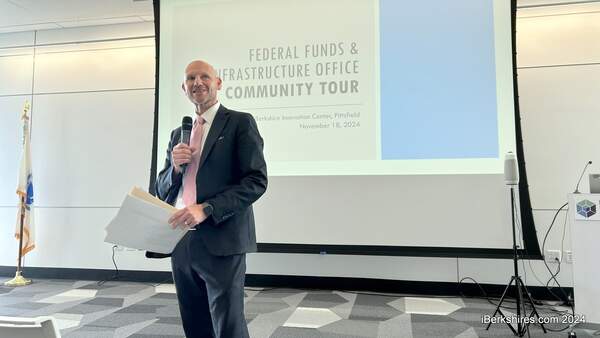Governor Details Stay Policy at Emergency Assistance Sites
BOSTON — The Healey-Driscoll administration announced details of the new nine-month length of stay policy for the state's Emergency Assistance Family Shelter System (EA). The policy was passed by the Legislature and signed by the Governor at the end of April.
EA is for families with children or pregnant women experiencing homelessness. Last year, Governor Healeyannouncedthe system reached capacity at 7,500 families. Approximately half of the families in EA are newly arrived immigrants and half are long-time Massachusetts families.
"This policy is a responsible measure to address the capacity and fiscal constraints of our state's emergency assistance system," said Governor Maura Healey. "As Congress has repeatedly failed to act on this federal problem, Massachusetts has been going above and beyond – helping thousands of immigrants get work authorizations, jobs and ESOL classes. We've enhanced our workforce development and rehousing programs, which have resulted in a steady increase in families leaving the shelter system in recent months. This new length of stay policy will strengthen those efforts to connect families with the resources and services they need to move into
more stable housing and contribute to our workforce. We're grateful to the Legislature for their partnership."
In guidance published today, the Healey-Driscoll administration outlined the details of the new policy. Notices will begin going out on a rolling basis and will not affect all families immediately, starting with approximately 150 families in early July, to ensure that families receive adequate support in their transition out of EA. Notices will be made available in multiple languages and will tell families the following:
-
Their shelter benefit is expiring, and they are required to leave shelter within 90 days.
-
Whether they are eligible for a first 90-day extension.
-
How to find out whether they are eligible for a second 90-day extension.
Extension criteria include employment, training program participation, veteran status, disability status, school enrollment, imminent risk of harm due to domestic violence, imminent placement in housing and additional criteria outlined in the
guidance. Families who have utilized both extension options and/or do not qualify for extensions may re-apply for EA.
The Executive Office of Housing and Livable Communities (EOHLC) is working closely with providers to address questions, establish resources and facilitate effective messaging to families. EOHLC will also provide informational resources in multiple languages to support families as they work towards exiting the EA program and achieving housing stability.
The Executive Office of Labor and Workforce Development (EOLWD) also issued guidance on authorized training programs for qualified trainees currently residing in EA shelters. The supplemental budget appropriated $10 million for workforce training programs administered by EOLWD, which will be used to strengthen the administration's current programs and reach even more EA residents.
Additionally, the Department of Revenue issue guidance today on the administration of a tax credit for company-sponsored job training programs. The Temporary Authorized Training Tax Credit for Emergency Assistance is available to various types of businesses and corporations that provide training to an individual residing in Emergency Assistance family shelter who is enrolled in an authorized training program.
The Healey-Driscoll administration has prioritized work authorizations, job training and placement, ESOL classes, and rehousing assistance to help families leave EA sites for more stable housing. Since November 2023, the administration has helped 3,716 immigrants apply for work authorizations, and it is expected the vast majority have been approved. Additionally, 1,063 immigrants are enrolled in ESOL classes. Overall, 1,114 EA residents have gotten jobs in the past few months. The number of families leaving the EA system has steadily increased each month, with more than 331 families leaving in May.
The administration also recently implemented a30-dayengagement requirement at the state's safety-net sites. These sites are for families on the EA waitlist and currently serve approximately 190 families in Chelsea, Lexington and Cambridge.















